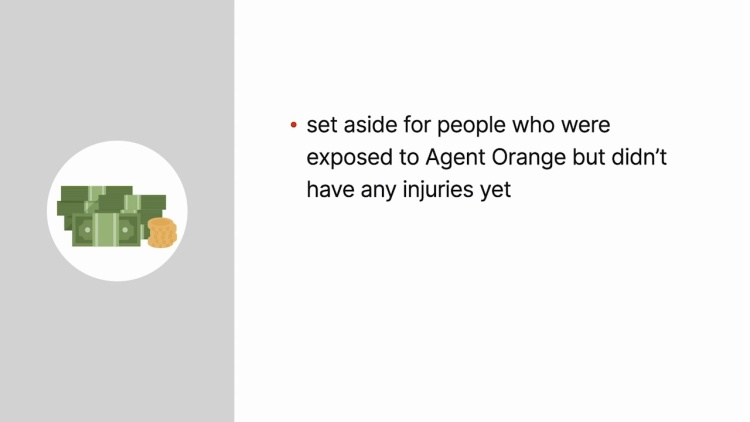Stephenson v. Dow Chemical Co.
United States Court of Appeals for the Second Circuit
273 F.3d 249 (2001), aff'd in part and vacated in part, 539 U.S. 111 (2003)

- Written by Sean Carroll, JD
Facts
A class action settlement was reached in 1984 in a case involving exposure to Agent Orange in Vietnam. The certified class in that case included individuals that had been exposed to Agent Orange in Vietnam, but whose injuries had not yet manifested. The settlement initiated a fund in which most of the funds from the settlement would be placed. Payments were to be made from the fund to exposed veterans in the class, but only for ten years, until 1994. The settlement specifically provided that no payment would be made “for death or disability occurring after December 31, 1994.” In 1996, Joe Isaacson (plaintiff), a member of the class, was diagnosed with non-Hodgkin’s Lymphoma, and in 1998, Daniel Stephenson (plaintiff), also a member of the class, was diagnosed with bone marrow cancer. The two brought suit against Dow Chemical, et al. (defendants) and their suits were consolidated. By the time the plaintiffs’ injuries manifested, the settlement fund in the prior litigation had expired. The defendants removed the plaintiffs’ suit to federal court and the district court granted the defendants’ motion to dismiss on the ground that their claim was res judicata on account of the 1984 settlement. The plaintiffs appealed.
Rule of Law
Issue
Holding and Reasoning (Parker, J.)
What to do next…
Here's why 907,000 law students have relied on our case briefs:
- Written by law professors and practitioners, not other law students. 47,100 briefs, keyed to 996 casebooks. Top-notch customer support.
- The right amount of information, includes the facts, issues, rule of law, holding and reasoning, and any concurrences and dissents.
- Access in your classes, works on your mobile and tablet. Massive library of related video lessons and high quality multiple-choice questions.
- Easy to use, uniform format for every case brief. Written in plain English, not in legalese. Our briefs summarize and simplify; they don’t just repeat the court’s language.







